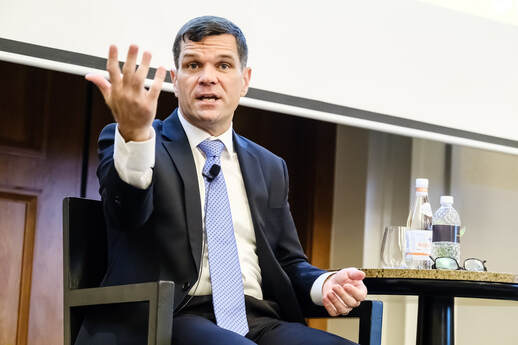
Mr. and Mrs. Lin Jo Yan Professor
Head of Department, Accounting Senior Fellow, Asian Bureau of Finance and Economic Research Fellow, Academy of International Business Most Cited Article - Journal of Accounting and Economics, 2004; Board Characteristics, Accounting Report Integrity, and the Cost of Debt Top 20 Most Cited Articles of all time - Journal of Finance Founding-Family Ownership and Firm Performance: Evidence from the S&P 500 |
Scopus
8,320 Google Scholar
22,027 |
|
I am a Professor at the National University of Singapore and hold the Mr. and Mrs. Lin Jo Yan Professorship, with appointments in both accounting and finance. I serve as a Senior Fellow of the Asian Bureau of Finance and Economic Research (ABFER), a Fellow at the Academy of International Business (AIB), as the Director of Business Doctoral Programs in NUS Business School, and Head of Department, Accounting. My research interests range from firm-wide compensation policy to the disclosure of corporate innovation, spanning founding-family ownership to financing startup firms. Current projects include investigating the compensation policies of Big 4 firms, managing employee pay, field experiments in entrepreneurial financing, and the distribution of financial analysts. Over the past several years, my work has appeared in the most influential academic journals in accounting, economics, finance, law, and management. This research has been featured in the Wall Street Journal, BusinessWeek, The Economist, Forbes, the Financial Times, the International Herald Tribune, Inc Magazine, SmartMoney, MSNBC, CNN, Bloomberg TV, and several other major newspapers and business magazines in the US, Canada, Europe, Australia and Asia. |
Recent Publications and Acceptances
Startups' Demand for Accounting Expertise: Evidence from a Randomized Field Experiment Review of Accounting Studies, Conditionally Accepted We conduct a randomized field experiment (RFE) to assess whether startup firms perceive accounting expertise as an important investor credential. Our RFE compares startup reactions to fictitious investors with CPA designations versus two control groups: investors without credentials and those with other professional licenses. Startup firms are 48% likelier to read unsolicited emails from CPA-bearing investors and 47% likelier to visit their websites, relative to investors with a medical license. We document an analogous preference for CPA-bearing investors even when we separately analyze startups in medical-related industries. In a follow-up experiment, we find startups are likelier to read emails and visit the website of a CPA-bearing investor relative to emails from an MBA-credentialed investor. Deleting Unreported Innovation Journal of Financial and Quantitative Analysis, 2022 The absence of observable innovation data for a firm often leads us to exclude or classify these firms as non-innovators. We assess the reliability of six methods for dealing with unreported innovation using several different counterfactuals for firms without reported R&D or patents. These tests reveal that excluding firms without observable innovation or imputing them as zero innovators and including a dummy variable can lead to biased parameter estimates for observed innovation and other explanatory variables. Excluding firms without patents is especially problematic, leading to false-positive results in empirical tests. Our tests suggest using multiple imputation to handle unreported innovation. Shadow Trading The Accounting Review, 2021 We investigate whether corporate insiders attempt to circumvent insider trading restrictions by using their private information to facilitate trading in economically-linked firms, a phenomenon we call “shadow trading.” Using measures of informed trading to proxy for shadow trading, we find increased levels of informed trading among business partners and competitors before a firm releases private information. To rule out alternative explanations, we examine two shocks to insiders’ incentives to engage in shadow trading: high-profile regulatory enforcement against conventional insider trading and staggered changes to their outside employment opportunities. Finally, we document attenuated levels of informed trading among business partners and competitors when firms prohibit shadow trading. Overall, we provide evidence that shadow trading is an undocumented and widespread mechanism that insiders use to avoid regulatory scrutiny. |
